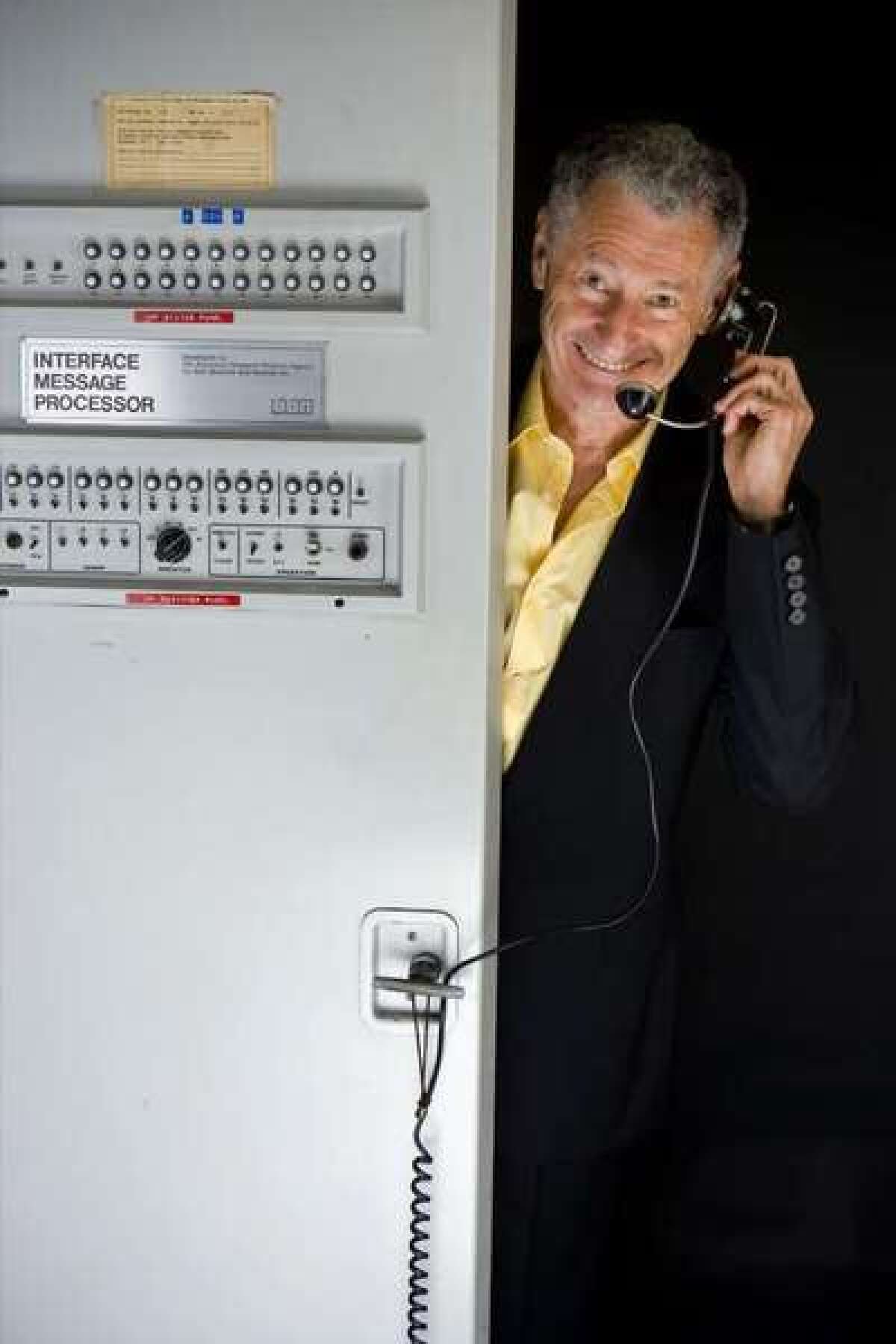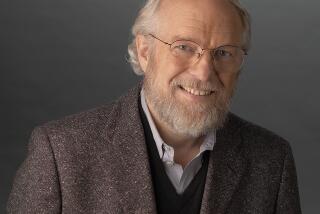Today in history: The Internet is born

- Share via
Just as victory has many fathers, great events often have many birthdays. We choose Oct. 29, 1969, as Day One of the Internet (which would make it 44 years old today) for a good reason. That was when the very first message moved between the first two computers connected on the new network designed to link the numerous computer science projects funded by the government.
That morning, an operator at Professor Leonard Kleinrock’s lab in UCLA’s Boelter Hall began tapping out the word “LOGIN” and sending it to a sister computer at SRI, a government contractor, in Menlo Park, Calif. (The linked computers were known as Interface Message Processors, or IMPs; UCLA’s was IMP-1.) He got as far as “LO” before the SRI unit crashed. Later that day the bug was fixed and the message completed. Within a year, ARPAnet linked 10 computers across the country.
That was only the first step, of course, in the development of what we now know as the Internet. That doesn’t mean that any of a number of other milestones along the way were just as important, or even more important. The first email message using the “@” symbol in its address went out in 1971; Bob Kahn and Vint Cerf developed the crucial TCP/IP protocol in 1974; Tim Berners-Lee implemented the World Wide Web--that version of the Internet we access through our browsers--in 1989.
Some of those dates themselves are arbitrary, for the development of each milestone often took years. At some point the concept of an “internet”--a generic term for a network of networks--gave way to the “Internet,” the global utility that we recognized as having changed our lives. Its impact amazes some of its creators: “I thought the network would be useful,” Kleinrock told me in 2004, on the 35th anniversary of the first IMP transmission. “What I didn’t realize was that one day my 97-year-old mother would be on the Internet.”
Today’s anniversary gives us a chance to remember a salient fact about the Internet’s origins. It was a government project, built with your tax money, because private companies (namely AT&T and IBM) didn’t see enough profit in the idea. That’s what government is supposed to do--take on important jobs shunned by the private sector.
The network was the brainchild of Robert W. Taylor, then chief of the information technology office at the Defense Department’s Advanced Research Projects Agency (ARPA), who demanded that the computer research projects he was funding around the country learn to talk to one another. In 1966 he secured a $1-million appropriation for the design and construction of a network that would interconnect MIT, Berkeley, UCLA and other university research computers nationwide. The network would be known at first as the ARPAnet, but its role as the Internet’s parent is undisputed.
Taylor, who later moved to Xerox’s Palo Alto Research Center, where he oversaw the invention of the personal computer, knew that the network he ordered up would be more than an administrative convenience. In a 1968 paper he co-authored entitled “The Computer as a Communication Device,” he looked ahead to its future as a public utility.
“In a few years,” the paper began, “men will be able to communicate more effectively through a machine than face to face.” Taylor forecast that the network would provide some services for which you’d “subscribe on a regular basis,” like investment advice, and others that you would “call for when you need them,” like dictionaries and encyclopedias. Communicating online, he concluded, “will be as natural an extension of individual work as face-to-face communication is now.” How’s that for vision?
Today Bob Taylor is living in Northern California; back in 2009 he was feted by his alma mater, the University of Texas. Kleinrock is emeritus distinguished professor of computer science at UCLA. On this day let’s hoist a glass to them, and to all the others who helped create the system on which you may very well be reading this piece, in gratitude.
More to Read
Sign up for Essential California
The most important California stories and recommendations in your inbox every morning.
You may occasionally receive promotional content from the Los Angeles Times.










